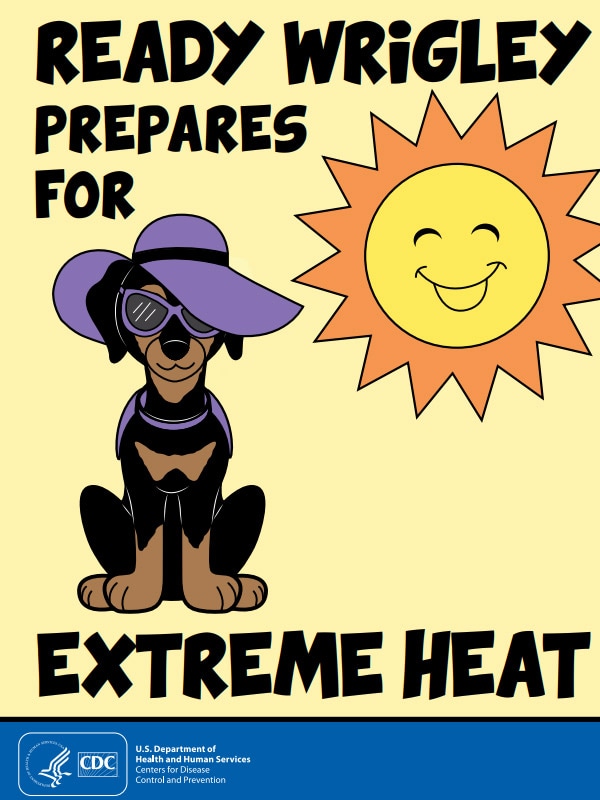Key points
- Infants and young children rely on others to keep them cool and hydrated when it's hot outside.
- Take steps to protect kids on hot days.
Protect kids on hot days

Take steps to protect kids from heat on hot days.
Reminder
Keep kids cool and hydrated.

Download in English or in Spanish.
- Never leave infants or children in a parked car, even if the windows are open.
- Dress infants and children in loose, lightweight, light-colored clothing.
- Make sure they're drinking plenty of fluids. Stay away from really cold drinks or drinks with too much sugar.
- Follow additional tips on how to prevent heat-related illness.
Never leave kids in a parked car.
- Even when it feels cool outside, cars can heat up to dangerous temperatures very quickly.
- Leaving a window open is not enough- temperatures inside the car can rise almost 20 degrees Fahrenheit within the first 10 minutes, even with a window cracked open.
- Children who are left unattended in parked cars are at greatest risk for heat stroke, and possibly death.
Tips for traveling with children:
- Never leave infants or children in a parked car, even if the windows are cracked open.
- To remind yourself that a child is in the car, keep a stuffed animal in the car seat. When the child is buckled in, place the stuffed animal in the front with the driver.
- When leaving your car, check to be sure everyone is out of the car. Do not overlook any children who have fallen asleep in the car.
Learn how to spot heat-related illness.
- Seek medical care immediately if your child has symptoms of heat-related illness.
Check your local HeatRisk and Air Quality
Enter your zip code on the CDC HeatRisk Dashboard for the heat risk forecast in your area and recommended actions to protect your health.
- Plus, check air quality levels – so you can plan your week with your health in mind.
